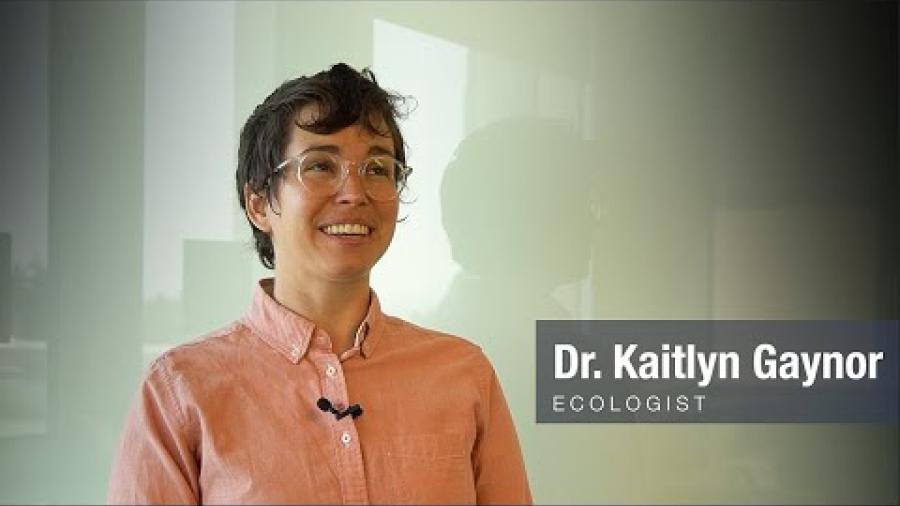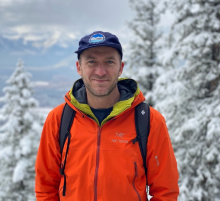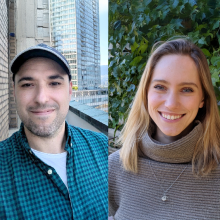
The civil war that raged for decades in Mozambique was deadly not only for its people. The country’s wildlife also paid a heavy toll. The epicentre of the conflict was the 4,000 square kilometre Gorongosa National Park at the southern end of the Great African Rift Valley.
“There was a lot of hunting to feed armies, and during the war hungry people turned to wild meat to survive,” says Dr. Kaitlyn Gaynor. “About 90 per cent of the large mammals in the area were killed.”
But after peace came to Mozambique in 1992, the remnants of large herbivore populations have rebounded naturally—although some animals have been reintroduced to the park to increase genetic diversity. Dr. Gaynor, who recently joined UBC’s Departments of Zoology and Botany, is working to determine what lessons we can learn from the successful postwar recovery of Gorongosa.
“It's a story of hope,” she says. “We hear a lot of stories of doom and gloom around conservation and the impacts of humans on the environment.”
“Gorongosa highlights that ecosystems can be restored, though perhaps not exactly to their original state. If you look at the total amount of animals in the park, it's equivalent to pre-war numbers, although the relative abundance of different species is a little out of whack. There used to be a lot more buffalo, zebra and wildebeest. Now we see many antelope like waterbuck instead.”
Recently, African wild dogs, leopards and hyena were added to the park to help restore balance to the ecosystem. Dr. Gaynor and her collaborators in Gorongosa National Park are studying the impacts of predator reintroductions on their prey by combining long-term datasets collected on Gorongosa’s wildlife using motion activated cameras, aerial censuses, and GPS collars on carnivores. Monitoring the trajectory of recovery informs decisions about protecting species and their critical habitat.
The Gorongosa datasets have also been adapted into international K-12 curricula so that students can learn about ecology and conservation using real data.
“It always feels so cool when students react to stories of our research like, ‘Wow, that's what I want to do when I grow up!’ It reminds me that I have a pretty cool job.”
Dr. Gaynor will be wielding data when she teaches her first UBC class in January 2023, an introductory biostatistics class required for all biology majors.
“Basic statistics literacy is something that we all need, regardless of what fields of biology we’re in. Everyone in the world could stand to have a little more statistical literacy.”
Now settled in Vancouver, Dr. Gaynor is maintaining her research in Mozambique but is keen to learn about the key challenges to wildlife conservation in British Columbia.
“Most of my research is on the impacts of human disturbance on animal behavior,” says Dr. Gaynor, who holds a PhD in Environmental Science, Policy and Management from the University of California, Berkeley. “By understanding how human disturbances are changing behavior in a detrimental way—or by understanding the ability of animals to adapt to the changes that we're instilling in their environments— perhaps we can find solutions for coexistence.”
A self-identified queer scholar, Dr. Gaynor worked toward another kind of coexistence when she led the implementation of the first strategic plan for equity, diversity and inclusion at the National Center for Ecological Analysis and Synthesis at the University of California, Santa Barbara, where she did her postdoctoral research.
“The strategic planning effort worked because we had great support from the leadership. That's key—putting money where values are to support initiatives that require funding. Also key is creating space to listen to people and hear feedback, and then take it to heart.”
Any plan should also be treated like a living document, says Dr. Gaynor. "Recognize that it's an ongoing process, not a checklist of things that you do. It's about putting inclusive policies in place and then constantly reassessing the outcomes, making sure that you're on target to meet your stated goals, and reassessing the goals themselves.”
Related Links:
Dr. Kaitlyn Gaynor's faculty profile at UBC Zoology
Dr. Kaitlyn Gaynor's research website


